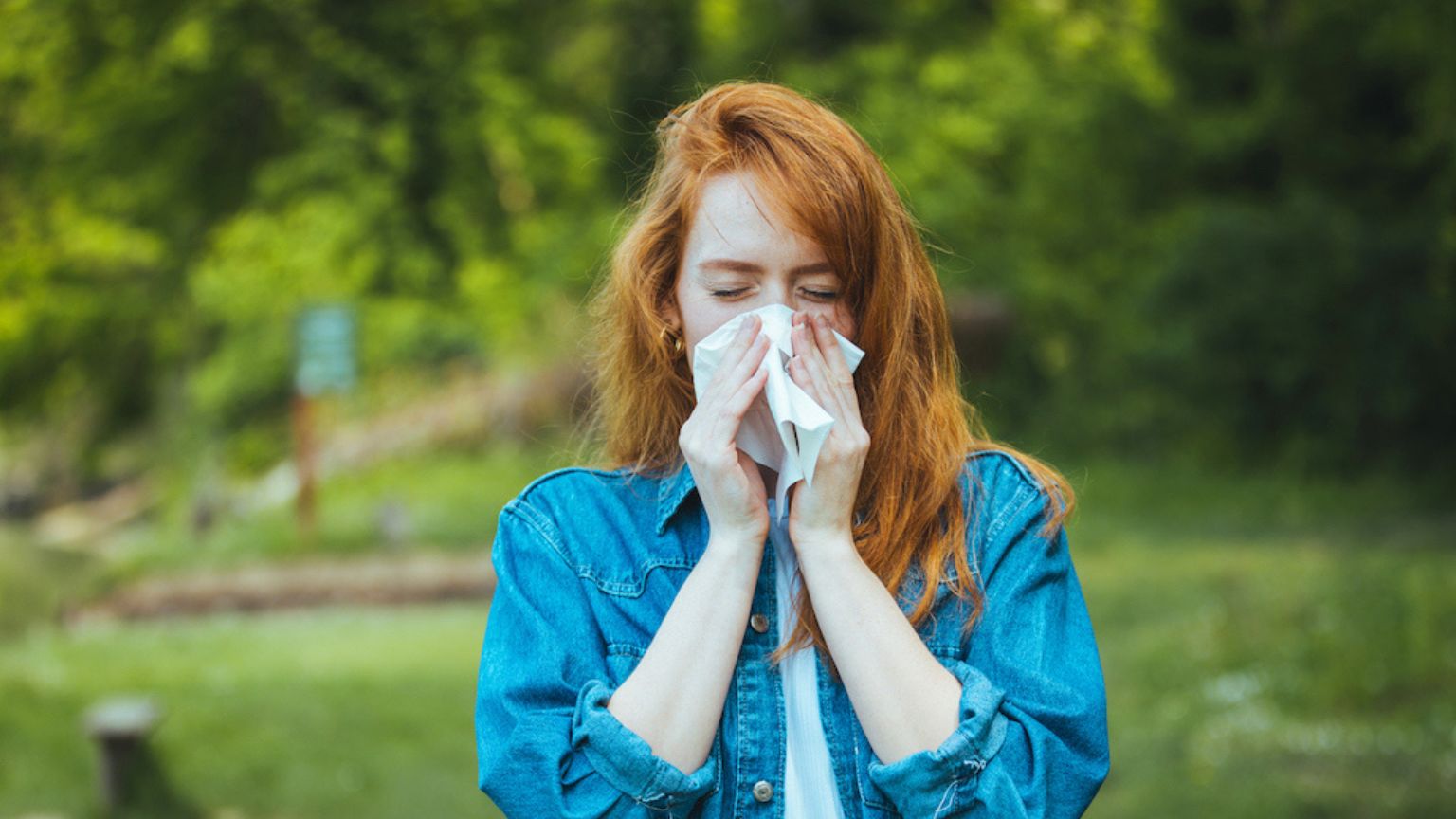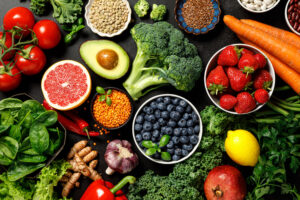Hay fever symptoms can quite literally ruin your summer. Healthista spoke to Nutritionist and Bio Kult’s Technical Advisor Hannah Braye on how to help manage allergy symptoms naturally
Hay fever (also known as seasonal allergic rhinitis), is a skewed immune reaction to inhaled pollen released from local trees, grasses and flowers.
It’s caused by an over-reactive immune response to usually harmless substances, triggering the release of IgE antibodies and the inflammatory substance histamine.
The allergic response causes inflammation of the mucosal lining of the nasal passages, throat and eyes resulting in symptoms. It is usually worst between late March and September, especially when it’s warm, humid and windy, as this is when the pollen count is at its highest.
caused by an over-reactive immune response to usually harmless substances
Whilst hay fever is something that many people just try and live with, as hay fever relates to immune dysregulation, a variety of dietary and lifestyle interventions to support the immune system may be of benefit to help manage symptoms.
Hay Fever Tip #1 Reduce your exposure to pollen
Tracking the pollen count in your area and, where possible, avoiding spending lots of time outdoors when it’s at its highest is likely to reduce exposure and irritation.
Keeping windows and doors shut on high pollen days and instead using fans or air con to keep cool is also advisable. When you have been outside, showering when you get home and especially before bed will help remove pollen residue from the skin, hair and nasal passages. This may help reduce irritation overnight, helping you to get a better night’s sleep.
try irrigating the nasal passages once a day using a neti-pot and saline solution
In addition, try irrigating the nasal passages once a day using a neti-pot and saline solution, to remove pollen residue and help clear any stuffiness. A 2017 Cochrane Review concluded that nasal saline irrigation may have benefits in both adults and children in relieving the symptoms of hay fever and is unlikely to be associated with adverse effects.
Similarly a recent 2019 meta-analysis found that nasal irrigation significantly improved nasal symptom scores and significantly lowered rescue antihistamine use in children with hay fever.
READ MORE: Hay fever symptoms? 8 things you need to know about allergy season
Hay Fever Tip #2 Eat more quercetin and vitamin C rich foods
The phytonutrient quercetin is known for its anti-allergic properties, and is therefore a useful addition to any anti-allergy diet.
Quercetin is thought to possess antioxidant, anti-inflammatory and anti-histamine properties. The main food sources are vegetables such as onions, garlic and broccoli, fruits such as apples, berries and grapes, some herbs and green and black tea.
quercetin is known for its anti-allergic properties
Quercetin appears to work synergistically with vitamin C, so topping up on lots of vitamin C rich foods such as broccoli, kiwi, strawberries, peppers and parsley is a good idea.
Vitamin C is also an anti-oxidant which protects cells against free-radicals in allergic inflammatory responses and studies have found that children with increased vitamin C consumption had fewer hay-fever symptoms.
READ MORE: The eczema diet – 5 foods that can help your flaky skin
Hay Fever Tip #3 Add more fermented foods to your diet
Recent research points to an important role of the gut microbiome in allergic conditions. It is well established that the microbiome can modulate immune responses and bacterial dysbiosis (an imbalance of the gut microbes) is a risk factor for inflammatory conditions, such as hay fever.
the microbiome can modulate immune responses and bacterial dysbiosis (an imbalance of the gut microbes)
It is thought that fermented foods containing lactic-acid producing bacteria are able to deviate the immune response away from a pro-allergy response.3 Therefore, regularly incorporating traditionally fermented foods such as sauerkraut, kimchi, kefir, live yoghurt, miso and kombucha, which contain live bacteria in the diet may be beneficial.
For example, dietary studies have suggested that long-term consumption of live yogurt can reduce some of the clinical symptoms of allergy in adults with hay fever or nasal allergies.
READ MORE: This is how fermented foods can transform your health
Hay Fever Tip #4 Take live bacteria supplements
Research suggests that live bacteria supplements, such as Bio-Kult Everyday, £19.98, containing 14 different strains, may benefit hay fever sufferers via interactions with the immune system, which modify the natural course of allergic disease.
A number of large systematic reviews and meta-analyses (where researchers review all high-quality evidence on a subject) have recently been conducted into the use of live bacteria supplements in hay fever, with positive effects being fairly consistently found.
For example, a 2022 systematic review and meta-analysis which reviewed the results of 28 studies showed that live bacteria supplements significantly relieved hay fever symptoms, improved Quality of Life scores and increased levels of certain types of T cells, helping to address imbalances in immune cells implicated in hay fever.
Although beneficial effects of live bacteria supplementation have been shown even when commenced at the height of allergy symptoms, it is hypothesised that they may be even more effective when taken for a period prior to hay fever season as a preventative measure, so make sure to stock up early next year.
HEALTHISTA’S ANSWER TO MENOPAUSE: PRESS PLAY, NOT PAUSE.
The Healthista Menopause Pack is a fully comprehensive online video workshop, led by Dr Dawn Harper; affordable, accessible and covering all aspects of the menopause, for those who need it most.
With expert advice and information from seven credible menopause industry experts, we hope that this online resource will help women navigate common health and wellness changes and challenges they may experience before, after and during the menopause.
Like this article? Sign up to our newsletter to get more articles like this delivered straight to your inbox.
























































